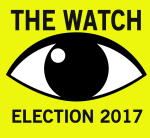
Aram Rawf is standing for Labour in the Kent County Council elections on May 4. Ex-asylum seeker Aram is taking on Chris Wells, leader of UKIP controlled Thanet council.

Aram Rawf is standing for Labour in the Kent County Council elections on May 4. Ex-asylum seeker Aram is taking on Chris Wells, leader of UKIP controlled Thanet council.

Barry Lewis is standing for Labour in Margate in the Kent County Council elections on May 4. He is confident about his own prospects. And he thinks the general election will be affected by Tory “skeletons” yet to come out of the cupboard…

Raushan Ara is standing for Labour in Ramsgate in the May Kent County Council elections. She reckons many people are now switching from UKIP back to Labour and that the General Election will see a big change coming.

Stuart McCann, Labour’s candidate for Broadstairs in the Kent County Council Elections gives his view of how things are going.
“BOLSHIE” BARRY ON COMEBACK BID AFTER 30 YEARS

GLORY DAYS: Barry Lewis and partner when he won election to Thanet Council in 1987
One of the most controversial characters on Thanet’s political scene is bidding to make a comeback 30 years after he was first elected.
Famous for his comic wit and outspoken outbursts in the council chamber the rebellious Barry Lewis was elected district councillor in Cliftonville, Margate, for the Labour Party in 1987.
Barry said he made a big impact.
“At that time politics in Thanet were very stuffy and formal. I wanted to shake things up a bit, try to get people rethink their ideas – but do things with a smile. Sometimes even the opposition couldn’t help but laugh.”
Barry threw his energy into the political battles of the 1980s, taking a stand on things like AIDS, nursery education and low wages.
“I threw a competition to find out who was the Scrooge Employer of the Year to highlight how little some people were earning with a prize of an inscribed copy of Charles Dickens’ “A Christmas Carol” for the winner,” Barry said.
“The Scrooge employer at that time was the council itself – paying some people as low as £1.50 an hour.”
Barry (nicknamed Bolshie Barry) has a scrapbook bulging with newspaper cuttings documenting his clashes with the political establishment of his day.
He faced criticism from his opponents for publicity seeking and doing “stunts”. Once a council committee voted to ban him from their meetings – but he fought the ban and won.
Barry said: “My idea was that I was there to represent my electors, residents of one of the poorest wards in the south east of England and that I should do everything I could to fight for their interests.”
But it was the row over the poll tax which Barry is now best remembered for. The poll tax, or community charge as it was officially called, was a new way of charging rates on homes brought in by Margaret Thatcher. Many saw it as unfair to poorer people and Barry put his neck on the line to oppose it.
Believing the local Labour members weren’t doing enough to oppose the tax, he resigned his seat and fought it as an independent candidate.
Barry said: “The idea was to make the poll tax an election issue, to give people a chance to show their feelings about it.”
Against all expectations Barry won the election.
“It was a brilliant victory,” said Barry, “and showed how strongly ordinary people felt about this disgusting tax.”
But Barry faced prosecution when he refused to pay the tax himself.
“I was taken to court and the magistrate told me I should pay up. I told him I had an electoral mandate to oppose the poll tax.”
Eventually, facing huge popular opposition, the Conservative government were forced to scrap the poll tax and many credit this as an important factor in Mrs Thatcher’s fall from power.
Barry believes the poll tax protests may have an important lesson for today.
“The poll tax was very unpopular,” he said. “But it also became a focus for people’s growing discontent with the Thatcher government. What might become a similar focus for discontent today? My bet it will be the NHS.”
Barry is standing for Labour in the Margate division of Kent County Council Elections on Thursday 4 May.